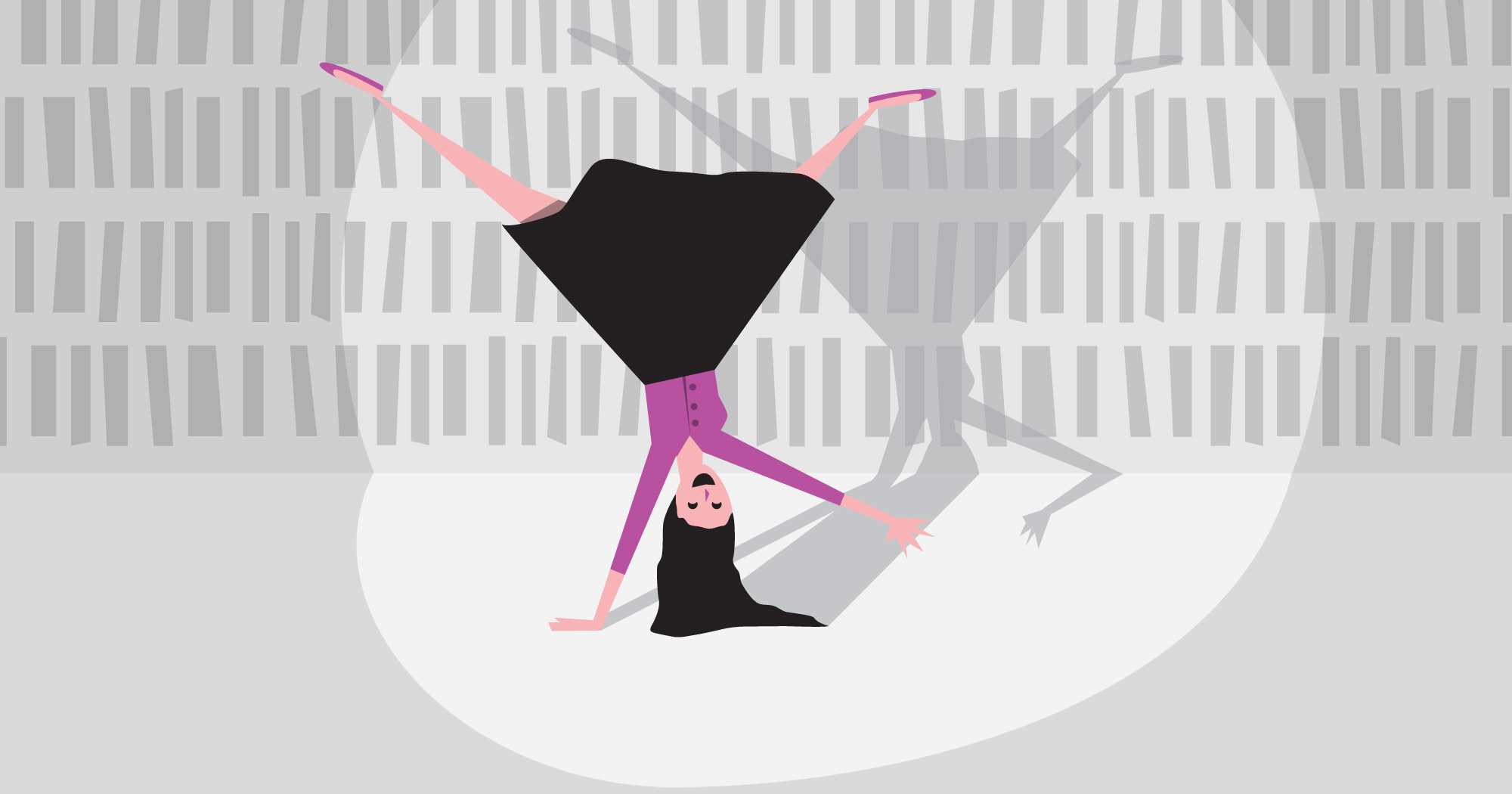No More Cartwheels After Closing; Mourning My Lost Librarian Status

My first substantial job after college (after lots and lots of college) was the fulfillment of a childhood dream: I ensconced myself behind the counter of my local library and became a distributor of books.
As a patron, I’d always romanticized libraries: as reverentially quiet places, with silence broken only by whispers or the susurration of pages. As the space you take to if you want your reading list to be the basis of establishing status. Librarians were, in my view, universally and magnanimously curious—beings who could take to the shelves to procure the perfect volume upon request. The Demco squeak of covers opening against hands? Well, that’s the opening peal of a symphony.
Romanticized them far too much, perhaps, because the reality is that librarians are constantly battling against politicians who leave their branches strapped for cash—who are forced, again and again, to justify the existence of their profession to unfeeling, elected nonreaders—and who handle, when they’re not wrestling bureaucratic forces, a lot of sticky books. They’re asked for directions to James Patterson far more than they are for their own readerly opinions, and patrons need help logging onto e-mail far more often than they do request assistance with research. Burst the bubble while you can: glamorous, library work is not.
But it does have fringe benefits.
I’ve gone from patron to insider, and now I’m back in patron territory again. I’ve signed up for a card online, and now only have to visit my local branch to be back on borrowing terms. But I’m hesitating. How will I fare without my librarian’s privileges?
Like no late fees. Ah, the gift of no late fees. When was the last time I returned a library book on time? When I even really expected myself to? As a patron, I won’t have the luxury of regarding a due date as just a loose suggestion. A day’s delay on Sagan is going to carry a cost.
Or being the first to check out materials. Particularly once you become intimately familiar with the reality that library books don’t always come back clean: having early access to new volumes is a real boon. I got to a lot of major books before patrons were even aware that we owned them; that’s not something you can do from the other side of the circulation desk. I’ll be on the holds list with everyone else.
Total access to cataloged material is another benefit—and, I suppose, one that patrons share. Though: from the librarian’s side, I never felt guilty about putting oodles of volumes on hold on a whim, and then deciding when they came in whether I actually wanted them or not. I was the librarian; that bookish gluttony only created extra work for me. I’m not going to have fans among the local librarians if I continue that habit now.
The after hours library visit is off-limits to me now, too: the time before opening when it’s just you and the books and the hum of a host of computer monitors. You can, as one fellow librarian always encouraged us to, turn cartwheels in the stacks, and without consequences. If you wanted to. You can browse (while shelving) without other patrons behind you, you can commune with the books…whatever you wish. If I go in before hours to my new branch, I’ll be trespassing. When it was just me in my previous branch, it felt like my space to be intruded upon.
Directing the dialogue is always nice, too. Arranging a display for Women’s History Month always momentarily sated the needs of my feminist soul. Highlighting books that are underread, or that I felt should be more read: that’s something a librarian can do with authority, but that would just be pushy and obnoxious from the patron’s end. Librarians get to set a reading tone. As a patron: I’m left alone with my own.
It’s probably a little shameful that this list is really just a litany of librarian privileges—as if the space was ever more mine than the public’s, or as if I was at all justified in taking personal liberties with the rules. But there was such comfort in being the gatekeeper. They felt like my rules to break; I forgot that I was obliged to follow them, too.
I’m going to have to relearn library etiquette. Carl Sagan’s whole game in town is in the 900s section of a branch two blocks away; to participate, I’ll have to play nice. Bring in my bills and local license, smile for the librarian on duty, not ask too many obnoxious questions, and honor the due date. These are reasonable expectations.
I’ll acclimatize to expecting them of myself again. I hope. (Limited late fees or bust.)

Michelle Anne Schingler is associate editor at Foreword Reviews. You can follow her on Twitter @mschingler or e-mail her at mschingler@forewordreviews.com.
Michelle Anne Schingler
